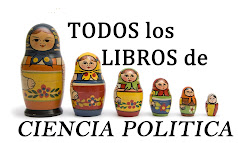PublicAffairs | 2007 | ISBN: 1586484931 | 296 pages | siPDF | 4.45 MB
The winner of the Nobel Peace Prize outlines his vision for a new business model that combines the power of free markets with the quest for a more humane world—and tells the inspiring stories of companies that are doing this work today.
In the last two decades, free markets have swept the globe, bringing with them enormous potential for positive change. But traditional capitalism cannot solve problems like inequality and poverty, because it is hampered by a narrow view of human nature in which people are one-dimensional beings concerned only with profit.
In fact, human beings have many other drives and passions, including the spiritual, the social, and the altruistic. Welcome to the world of social business, where the creative vision of the entrepreneur is applied to today's most serious problems: feeding the poor, housing the homeless, healing the sick, and protecting the planet.
Creating a World Without Poverty tells the stories of some of the earliest examples of social businesses, including Yunus's own Grameen Bank. It reveals the next phase in a hopeful economic and social revolution that is already under way—and in the worldwide effort to eliminate poverty by unleashing the productive energy of every human being.
From Inside Flap
What if you could harness the power of the free market to solve the problems of poverty, hunger, and inequality? To some, it sounds impossible. But Nobel Peace Prizewinner Muhammad Yunus is doing exactly that. As founder of Grameen Bank, Yunus pioneered microcredit, the innovative banking program that provides poor people—mainly women—with small loans they use to launch businesses and lift their families out of poverty. In the past thirty years, microcredit has spread to every continent and benefited over 100 million families.
But Yunus remained unsatisfied. Much more could be done, he believed, if the dynamics of capitalism could be applied to humanity's greatest challenges.
Now, in Creating a World Without Poverty, Yunus goes beyond microcredit to pioneer the idea of social business—a completely new way to use the creative vibrancy of business to tackle social problems from poverty and pollution to inadequate health care and lack of education.
This book describes how Yunus—in partnership with some of the world's most visionary business leaders—has launched the world's first purposely designed social businesses. From collaborating with Danone to produce affordable, nutritious yogurt for malnourished children in Bangladesh to building eyecare hospitals that will save thousands of poor people from blindness, Creating a World Without Poverty offers a glimpse of the amazing future Yunus forecasts for a planet transformed by thousands of social businesses. Yunus's "Next Big Idea" offers a pioneering model for nothing less than a new, more humane form of capitalism.
From Publishers Weekly
Economics professor Yunus claims he originally became involved in the poverty issue not as a policy-maker, scholar, or researcher, but because poverty was all around me. With these words he stopped teaching elegant theories and began lending small amounts of money, $40 or less, without collateral, to the poorest women in the world. Thirty-three years later, the Grameen Bank has helped seven million people live better lives building businesses to serve the poor. The bank is solidly profitable, with a 98.6% repayment rate. It inspired the micro-credit movement, which has helped 100 million of the poorest people in the world escape poverty and earned Yunus (Banker to the Poor) a Nobel Peace prize. This volume efficiently recounts the story of microcredit, then discusses Social Business, organizations designed to help people while turning profits. French food giant Danone's partnership to market yogurt in Bangladesh is described in detail, along with 25 other businesses that operate under the Grameen banner. Infused with entrepreneurial spirit and the excitement of a worthy challenge, this book is the opposite of pessimistic recitals of intractable poverty's horrors.






Publicar un comentario